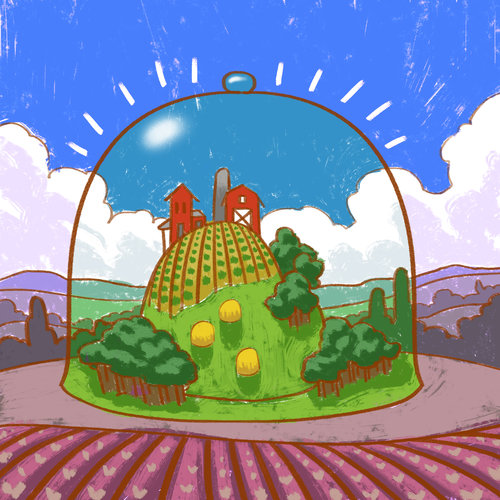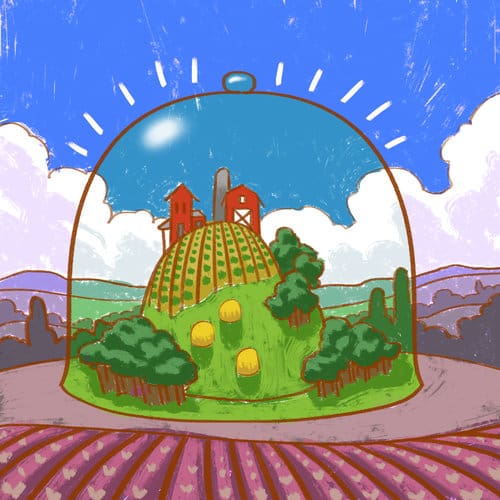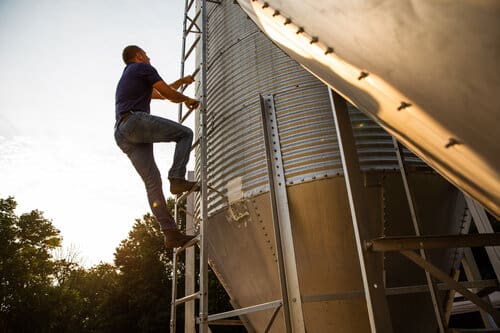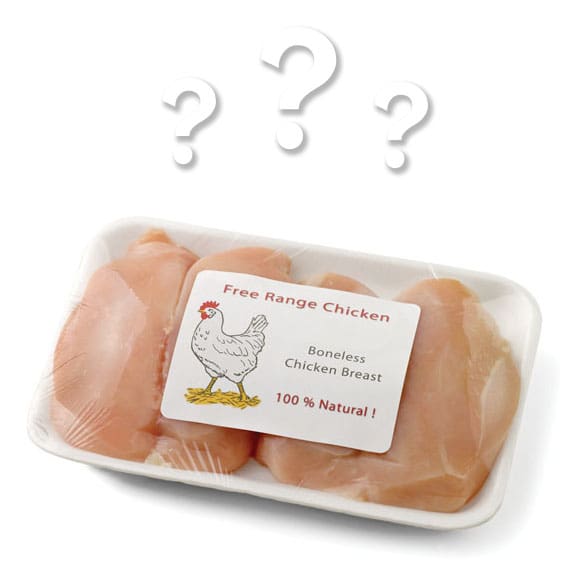The benefits of going Organic reach so much farther than our individual health interests. Including environmental sustainability and animal welfare, Organic farming practices provide real benefits for the hard-working people who put food on our plates.

HEALTHIER WORK ENVIRONMENT:
Conventional non-Organic farming sprays hundreds of thousands of gallons of pesticides and herbicides on their crops each year—and farmers/laborers are experiencing the consequences of long-term exposure.
The Organic Center, with funding from the UNFI Foundation, synthesized 129 research studies from around the world that looked at the impacts of synthetic pesticides on the health of farm-workers and farm communities. The EPA estimates that agricultural workers and others who handle pesticides suffer between 1,800 and 3,000 preventable exposures per year. While some symptoms are immediate (skin irritation or respiratory problems) longer term exposure can be devastating (cancer, poor reproductive health, and neurodegenerative disorders).
As part of the EPA’s Conventional Reduced Risk Pesticide Program, several agrochemicals that have been linked to brain damage and water contamination are up for review: chlorpyrifos-methyl, dicrotophos, dimethoate, ethoprop, profenofos, terbufos and tribufos.
EarthJustice’s Sustainable Food & Farming program puts people on the ground to fight for healthier working environments for farmers and farm laborers. In this video as part of the Growing Change series (published 2016), Jim Cochran tells the story of why he made the pioneering choice to go Organic in the 90’s, and how his strawberry farming operation has evolved to provide care for his employees and their families.https://www.youtube.com/embed/WKR1jLgDhjw?wmode=opaque&enablejsapi=1
Every person working the land—from farmers to farm laborers—deserve the same access to safe working environment as the rest of us. After all, they are the folks responsible for making sure we’re fed.

MORE PROFITABLE PER ACRE:
Selling organic is profitable—22-35% more profitable than conventional farming, according to a comprehensive study by Washington State University. Researchers David W. Crowder and John P. Reganold gathered data from 44 studies of 55 crops grown on 5 five continents spanning 40 years—in an attempt to prove the economic competitiveness of Organic farming vs. conventional.
The study found costs between running an organic and conventional farm are roughly even. Organic farmers don’t have to buy expensive synthetic pesticides and fertilizers, but they do spend more on labor costs (we call it reinvesting in the community through job creation and stability). So what gives organic producers the extra bump? They get a higher price when selling certified Organic crops. This “premium” is around 30% and has stayed roughly the same over four decades.

HEALTHY CHICKENS MAKE FOR HAPPY FARMERS:
So how do chickens factor into Organic agriculture?
Growing chickens on Organic feed creates a need for Organic crops. Most chicken feed includes a blend of soy and corn meal—which make up 171.4 million acres of cropland in America. Only tiny fractions of those crops are grown Organically, but the rising demand for certified Organic food and products is creating opportunities for more and more farms to switch over.
We really enjoy growing these chickens for SVO because of the healthier environment. I also feel its healthier for us as growers to be free of all the chemicals and additives that were used in the [conventional] chicken. These organic chickens are definitely happier 🙂 and healthier, which makes it fun to grow them.
-Elsie Cline, Pine Grove Farm
🌱
When it comes to the health and welfare of our fellow humans, it’s worth considering what ways going Organic is worth the investment. Click the links in this post as a starting point for further reading, and search out more reasons why going Organic is better for farmers.



